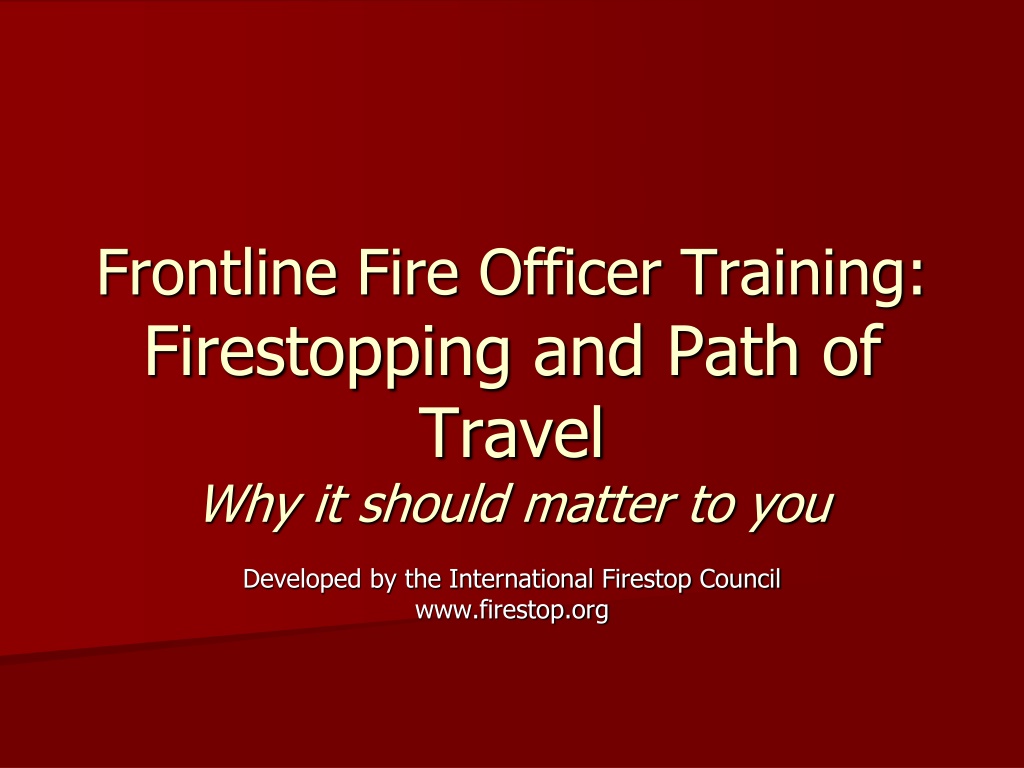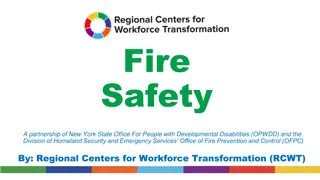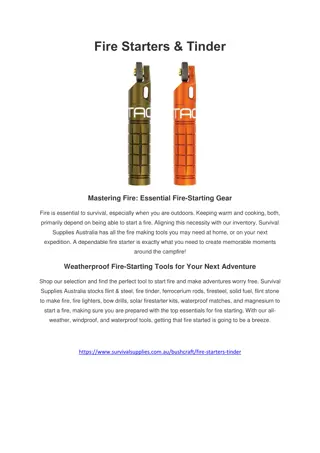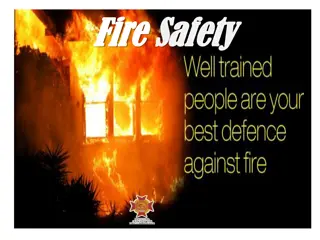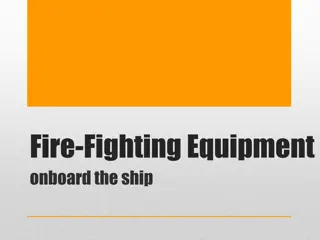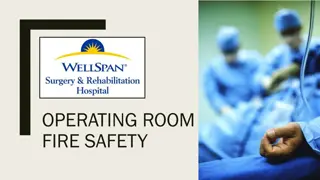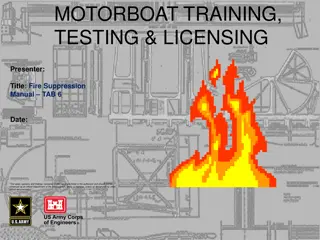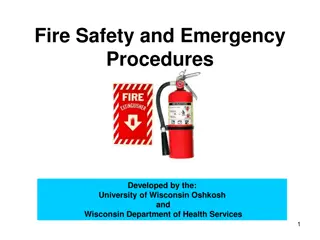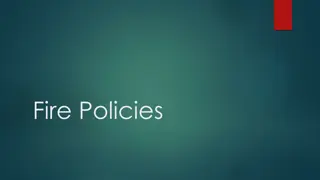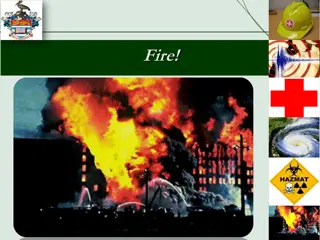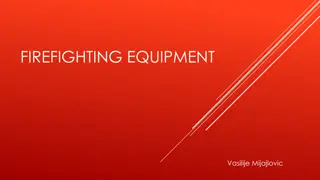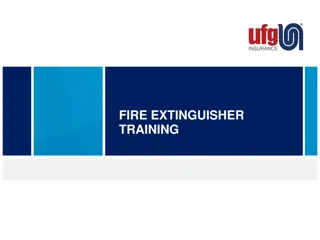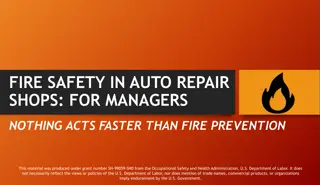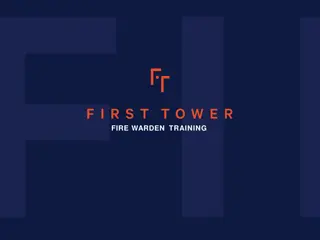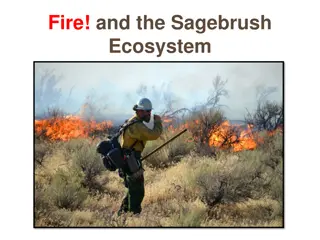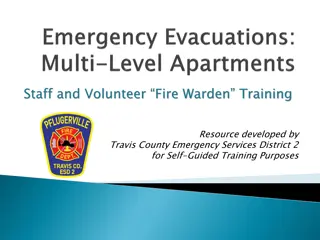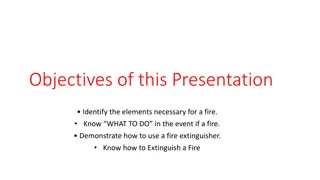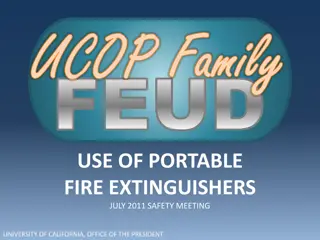Importance of Firestopping and Compartmentation in Frontline Fire Officer Training
Understanding firestopping and compartmentation is crucial for frontline firefighters as it helps protect their work environment, identify and report fire safety hazards, and advocate for building codes that enhance safety. These practices are vital in minimizing the path of fire travel, preventing smoke inhalation deaths, and ensuring efficient firefighting operations.
Download Presentation

Please find below an Image/Link to download the presentation.
The content on the website is provided AS IS for your information and personal use only. It may not be sold, licensed, or shared on other websites without obtaining consent from the author. Download presentation by click this link. If you encounter any issues during the download, it is possible that the publisher has removed the file from their server.
E N D
Presentation Transcript
Frontline Fire Officer Training: Firestopping and Path of Travel Why it should matter to you Developed by the International Firestop Council www.firestop.org
Key Questions Do you need to count on that floor or wall? What is protecting you from below during search and rescue? What allows you to advance a hose line down a hallway? What can I do to better protect myself and my colleagues?
Across the country budget reductions result in frontline companies being asked to do more and more with less Are you being asked to do more inspections? Do you think these inspections are effective? Do you know what you are looking for?
Objectives Protect your work environment Notice fire safety hazards Report fire safety hazards Understand code requirements that help fire compartmentation Be an advocate for building code and fire code requirements that help buildings be built safe and stay safe
Fire Protection Containment
Compartmentation Use of fire-rated construction to divide a building into smaller areas Key to minimizing path of travel Divide and conquer
Importance of Compartmentation What % of civilian fire deaths are caused by smoke inhalation? 75% What % of people killed in fires are NOT in the room where the fire started? About 57% How many firefighters perish due to fire contact and smoke inhalation? xxxxx
Why is building fire compartmentation important? Fire should not get behind you From below From the side Fire should not get ahead of building occupants in the path of egress Prevents multi-story fire spread
??? If a building has sprinklers, is compartmentation still needed? YES!
What is firestopping? The use of third-party tested products and systems to seal penetrants, gaps, or openings in fire-rated floors or walls to restore the rating of a barrier compromised by such openings.
How Do Firestop Products Work? Filling the voids around penetrations Cim.pennnant.com Firestoplogistics.com
When inspecting Understand occupancies with fire-rated (protected) corridors, separation walls and floors Fire walls Fire floors FW FW FF FF FF FF FF FF FW FW FW = Fire Rated Wall FF = Fire Rated Floor
When inspecting You will walk past problems Poor original installations Building changes over time Fire-rated corridor: Fire-rated corridor: The way you might find it The way it should be
Where to look Check electrical/mechanical closets Spot check by popping ceiling tiles Check walls between occupancies Look for rated doors Look for concrete block walls Look for fire/smoke dampers in ducts Walls with wire glass
When inspecting Ask to walk with someone who knows the building Report/discuss the problems you see Refer to your fire prevention bureau Refer to the building department Chapter 7 of the International Fire Code mandates maintenance including through penetrations 2009 IFC mandates annual inspection by property owner + correction of noted gaps in rated walls/floors
When reporting on a fire What did you observe? Where and how did fire and smoke spread?
When your community considers building or fire code changes Jurisdictions adopt model codes e.g. IBC, NFPA 101, NFPA 1 Local amendments commonly made Can strengthen or weaken the model code Weaker codes can imperil the population and the firefighter Weaker codes commonly advocated for by the local real estate/construction community (lower their costs)
When your community considers building or fire code changes You can make a difference! Tell your representatives to get involved Attend code change hearings (local, state, national) Request that your Chief get involved Make yourself available (city, state, national)
Wrapping it all up Locate Locate where firestopping has been neglected Confine Confine the fire to a room and protect your means of egress Extinguish Proper firestopping allows for the fire to be extinguished in a safer manner
Want to get involved, but want help with the first steps? Contact Battalion Chief Sean DeCrane Cleveland Fire Dept IAFF National Code Development representative rovloc93@aol.com Or contact the International Firestop Council www.firestop.org
